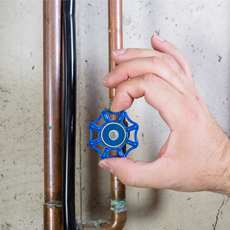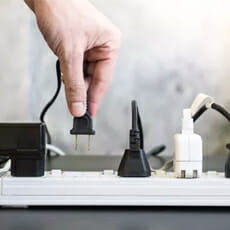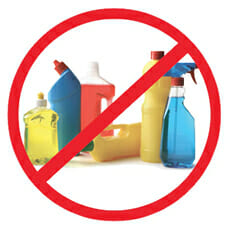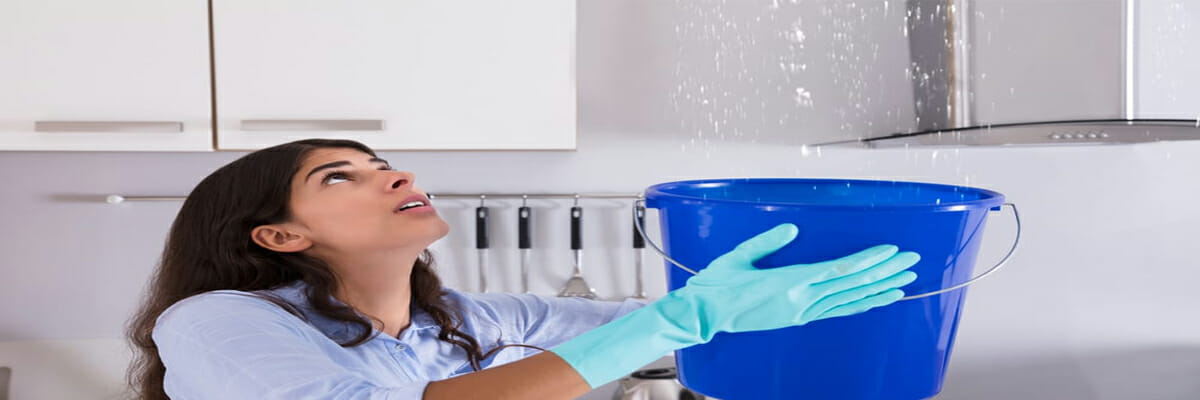Plumbing emergencies can be alarming, but it’s essential to remain calm and take action to prevent as much damage as possible.
Plumbing emergencies can always happen, even if you take precautions. They can be caused by anything from water heater issues to gas leaks, so it’s essential to know what to do in a plumbing emergency.
How To Know if It’s a Plumbing Emergency
Some plumbing problems may be severe but not full-on emergencies. A clogged toilet, for example, can often wait until the next day, while a water leak needs to be addressed as soon as possible.
You have an emergency if you have any of these issues:
- Water is flowing from a burst pipe
- You notice a pool of standing water
- You have a gas leak
- Water heater issues
Some recommend calling an emergency plumber if you have a blocked drain in your toilet, but this isn’t always the case. As long as the water isn’t overflowing, blockages can wait until the morning for a regular plumber, especially if you have access to another bathroom.
What Should You Do in a Plumbing Emergency
1. Turn off the Water

If you have a mainline issue or burst pipe, you may need to turn the water off for your whole house. In most cases, the main valve is near the water meter.
After turning off the valve, you will still have water in the plumbing system. You can drain this by turning on faucets around your home and opening your drains. You must only do this if you’re sure the issue is with an intake pipe, as this will worsen the problem if you have a leak in the drain pipe.
Call an emergency plumber first if you don’t know how to turn off your water. They will be able to guide you through the steps you should take.
Related post: How Water Moves Through Your House?
2. Call An Emergency Plumber
Call a local emergency plumber once you have stopped the water flowing. The sooner you can get services on the way, the better, so if you have two people at home, one can shut off the water while the other calls.
If you need a Sydney emergency plumber, call Damien McEvoy Plumbing 24 hours a day, seven days a week, at (02) 8599 4593. They offer various plumbing services and have different types of plumbers trained to handle specific problems.
3. Turn off Electrical Appliances

Do not unplug already wet devices, and turn the meter off with dry hands only.
If you’re not sure it’s safe to unplug or handle electronics, do not attempt to do this step yourself.
Call a professional who can handle the situation safely.
This also applies to your water heaters to avoid further damage. A hot water system repair can be done to replace only the damaged parts instead of buying another unit.
4. Clean Up Excess Water
Do not clean up excess water if there are active electronics in the area. However, if it is safe, clean up while you wait for the plumber. Picking up as much water as possible will help prevent severe damage to your home.
If you have valuables in the room, you can move them to somewhere you know will stay dry. Use whatever you have to clean up the water, including old towels.
5. Identify The Problem
If you can, try to figure out the problem or where it began. Look for where the water may have originated, or see if you can identify a problem with your water heater. Knowing what is wrong will make it easier to explain the situation when the plumber arrives.
Even if you are reasonably confident you know what is wrong, never attempt to fix it on your own, as you might make it worse. Wait for a plumbing service and mitigate further damage as much as you can in the meantime.
6. Avoid Using Chemicals

Never add chemicals to plumbing emergency situations; if they cannot flow through, the fumes can be dangerous for your eyes and lungs.
Chemicals can also damage your pipes and cause leaks.
FAQ
Does a Clogged Toilet Count as an Emergency?
A clogged toilet is not an emergency unless it is overflowing or the only toilet that you have access to.
You have a plumbing emergency if you have a water heater issue, a gas leak, or a leaking pipe. Clogs are usually not a plumbing emergency.
Is a Sink Not Draining an Emergency?
No, a sink not draining is not an emergency.
A blocked drain is rarely an emergency plumbing issue. While the problem should be addressed as soon as reasonable, you won’t cause damage to your home by leaving a blocked drain for a short period.
Can a Washer and a Toilet Share a Drain?
Yes, a washer and a toilet can share a drain. You can be sure they share a drainage pipe if your toilet bubbles when your washer drains.
Is Water Leakage Considered An Emergency?
Water leaks are usually considered emergencies.
If the leak is small, you can place a bucket underneath the drip and wait for regular hours. If the leak is fast, you have a plumbing emergency, and you should immediately shut off the valve and call a plumber.
Final Thought
Remember to keep the number of a local plumber handy and know where your water shut-offs are. A licensed professional plumber can take care of almost any issue that affects your water supply in a timely fashion, but until they arrive, take the above steps to keep you and your home safe.
You can call Damien McEvoy Plumbing for emergencies or residential plumbing services at (02) 8599 4593.


 Enquire
Enquire